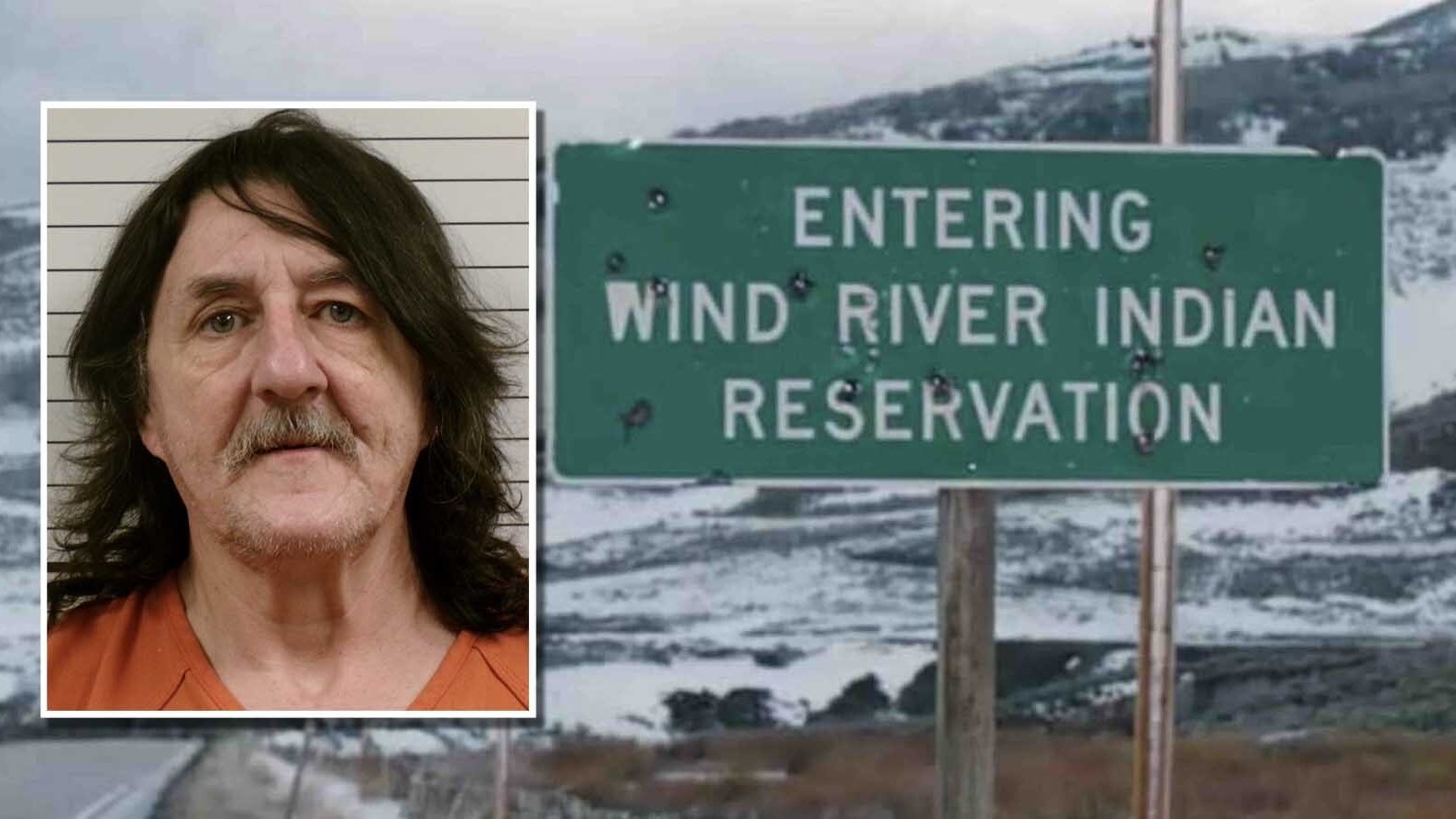In 35 days or less, Wyoming is slated to outlaw nearly all abortions.
In the wake of the U.S. Supreme Court’s ruling Friday overturning the landmark abortion ruling Roe vs. Wade, the clock began ticking on Wyoming’s “trigger law” approved this year banning most abortions.
“Today is a wonderful day. It’s a dream come true,” state Rep. Rachel Rodriguez-Williams, R-Cody, told Cowboy State Daily on Friday morning. “We’re living in a post-Roe America, but there’s still a lot of work to be done.”
However, others criticized the court’s ruling as taking away a fundamental right for women.
“It’s a sad day for women across the country, having their fundamental right taken away,” said Sen. Mike Gierau, D-Jackson. “I think it’s not good for the country; I think this whole issue has always been theoretical in the state and now it’s going to become real.”
The U.S. Supreme Court on Friday morning overturned Roe vs. Wade, which in 1973 deemed abortion access a constitutional right. The current Supreme Court justices, in a 6-3 majority opinion, declared that abortion access is not a fundamental right, but is a legal issue best left to state governments.
Wyoming, now with more power over abortion law than it has had in 50 years, is one of 13 states with a trigger ban in place, which fast-tracks the outlawing of abortion in the event of any overturn of Roe vs. Wade. Wyoming’s trigger ban and preexisting statute together would make abortions felonies punishable by up to 14 years in prison except in the case of severe health or death risks, rape and incest.
The definition of “abortion” in Wyoming law includes both surgical and non-surgical procedures, including pills used for elective terminations of pregnancy.
In 2021 there were 98 abortions reported by Wyoming physicians. Of those, 62 of the mothers had not had children prior; 16 had one child prior; 11 had two children, six had had three, and three had four or more children prior to the abortion, according to state vital statistics.
Governor’s Desk
The state must launch an internal conversation before changing the law. Wyoming Attorney General Bridget Hill has no more than 30 days to review the Supreme Court’s decision, and, if she finds the ruling aligns with Wyoming’s trigger ban, she must then report it to the governor and to the Legislature’s Joint Judiciary Committee, which alters criminal statutes.
Within five days of the AG’s nod, Gov. Mark Gordon “may,” the statute says, certify the new law and prompt the secretary of state to publish the change in statute.
Gordon did not guarantee that he would certify the change, but in a general statement dispatched Friday, he indicated that he agrees with the idea of the state taking primacy over abortion law.
“This is a decisive win for those who have fought for the rights of the unborn for the past 50 years,” Gordon said. “I signed Wyoming’s prohibition on abortion bill because I believe that the decision to regulate abortions should be left to the states.”
Strategy
Although elated, Rodriguez-Williams said now is the time to get to work. The legislator sponsored Wyoming’s trigger ban but resisted its exemptions for rape and incest, telling Cowboy State Daily in a past interview that “abortion clinics are a rapist’s best friend” and can be used to hide criminal evidence.
She called the court’s Friday ruling “exciting” and described it not just as a win for life, but for states’ rights.
Pro-choice advocates also are mobilizing, in a different direction, and hoping to preserve the rape and incest exemptions in Wyoming’s law while urging voters to favor pro-choice candidates at the polls.
“Sadly, the efforts to restrict abortion in Wyoming have likely only just begun,” said Rep. Patrick Sweeney, R-Casper, in a Friday press conference hosted by Julie Burkhart, Wellspring Health Access founder, who has been working to open an abortion clinic in Casper.
The abortion clinic last month was burned in a reported arson.
A self-described pro-choice advocate, Sweeney was one of a handful of Republican legislators to vote against Rodriguez-Williams’s trigger ban late this winter. He said he’s not hopeful that Wyoming’s pro-choice delegates are numerous enough to overturn the trigger ban, and recalled that it was a difficult fight to add the exemptions, which he said he’s committed to preserving.
“I don’t see a way to fight back on this and it was, as you’re all aware, pretty futile to even vote against it,” said Sweeney, noting that it was Sen. Cale Case, R-Lander, who led efforts in the Senate to insert the exemptions “at the last minute.”
“Otherwise those would have been left out,” Sweeney said.
Members of the Democratic Caucus to Wyoming’s Legislature, in a prepared statement, pledged to battle any attempts to remove the rape and incest exemptions from the law.
“As your Wyoming Democratic Caucus, we will resist these efforts, and are saddened and angered by our colleagues’ continual push to curtail our human rights,” the statement said. “We remind Wyomingites that this is an election year, and voters should understand what their candidates stand for: supporting raising Wyoming families or government control of reproductive decisions.”
Lawsuit?
Burkhart told the media in the same press conference that her organization’s resistance will be immediate, but she’s not yet certain what form it will take.
She indicated she may pursue legal action, but did not commit to it, saying she believes that the state’s Constitution in Article I, Section 38, defends “bodily autonomy.”
The Constitution section states that all competent adults have the right to make their own health care decisions without “undue government infringement.”
However, another paragraph in the same section gives the Legislature the right to “determine reasonable and necessary restrictions on the rights granted under this section to protect the health and general welfare of the people…”
Burkhart, whose clinic is slated to provide other care, counseling, and “gender-affirming care,” said it’s too soon to determine whether the clinic can survive with abortions generally outlawed.
She also worried that the ruling would place already-underserved populations under financial and time burdens, as women will be forced to seek abortions in other states.
Colorado is poised to offer abortion still, following the ruling.
Church And State
Rev. Leslie Kee, who spoke alongside Burkhart at the virtual press conference, said a key pro-choice strategy going forward is to advance an argument for separation of church and state.
“It is a moral and religious issue because the religious, fundamental right worked very hard to put six conservative Christian justices on the Supreme Court, and by doing that they have effectively used the government to privilege their own source of ultimate moral authority, which is the ‘our father in heaven’ God of the bible,” said Kee, emphasizing that different women may have different interpretations of their “god” and their god’s expectations for them.
“How is this religious slippery slope they’ve set us on now any different than what the Taliban is doing to women in Iraq?” Kee asked rhetorically.
Rep. Chip Neiman, R-Hulett, countered in his own interview that the issue is not about imposing religious pressure, but about the intrinsic value of unborn life.
“Wyoming was at the forefront of this (trigger ban). We had the opportunity to do what was right, and Wyoming did it,” said Neiman. “Wyoming is officially among the few states to say we believe in, and we protect life.”
Neiman, a trigger-ban co-sponsor, said he was thankful and honored to have been a part of the process, adding that he will work to repeal the rape and incest exemptions, which he deemed discriminatory.
“Stop and think about that. That’s discriminatory. Those little kids conceived in that manner, they didn’t get to choose how they were conceived,” he said. “Does that make them guilty?”
State Rep. Chuck Gray, R-Casper, a co-sponsor of the trigger ban, said he was pleased to see the ruling.
“This is a wonderful moment for our country,” Gray, a candidate for Wyoming’s secretary of state office, said in a prepared statement. “After nearly 50 years of horrific abortion-on-demand policies in America, Roe v. Wade has been ended. Now the pro-life law I helped cosponsor and pass in Wyoming will be triggered to ensure all innocent human beings can be protected in the Equality State.”
National Scene
Wyoming’s all-Republican federal delegation added strong sentiments to the discussion Friday, while President Joe Biden issued a statement expressing opposite views.
“Many will try to use this decision to divide our country and her citizens, but ultimately, the Supreme Court chose to side with the founding principles of our country,” junior U.S. Sen. Cynthia Lummis said in a public statement. “The states should decide how to approach abortion. I’m grateful for this pro-life decision from the Court today.”
Sen. Barrasso praised the return of power “back to states to legislate in a way that reflects the will of their voters.”
“Opponents of this decision want unlimited, on-demand abortions – for any reason – up until the moment of birth,” he continued. “With today’s decision, the United States will no longer have the same anti-life laws as countries like communist China and North Korea.”
Rep. Liz Cheney said she has “always been strongly pro-life” and likewise praised the return of power to the states.
Conversely, Biden, in a brief statement, predicted the ruling will have negative implications for women, saying “the health and life of women in this nation are now at risk.”
“Today the Supreme Court expressly took away a constitutional right for the American people,” Biden said. “They didn’t limit it. They simply took it away.”





